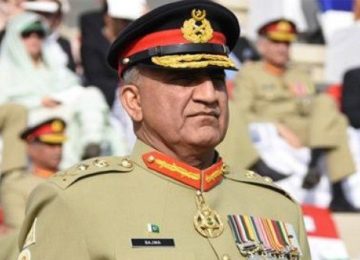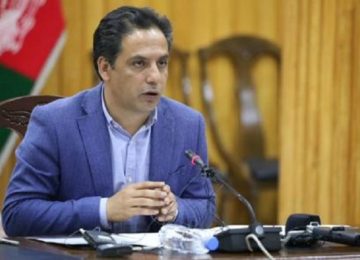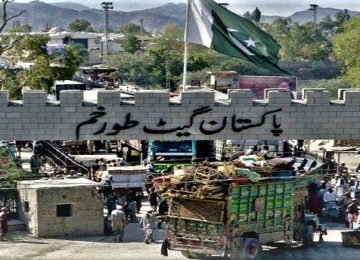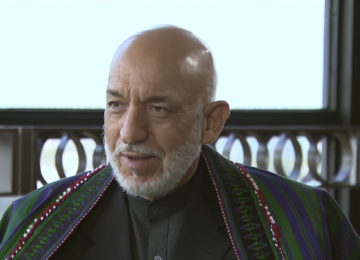April 17, 2019
The Imran Khan-led PTI government has been distressingly silent on one particular mega-issue, which is, without much debate, Pakistan’s biggest issue due to geographical, geopolitical and historical reasons: national security. Its ignorance of national security is not only represented in its rhetoric, but incorporated into its actual policies in whose formulation the lack of importance afforded to national security is evident.
National security is a fairly broad policy domain and inevitably spills across borders since national security threats pursued by the state often seek refuge in states sympathetic to them and hostile to the states they plague. This makes national security impossible to address without incorporating its requirements into foreign policy as well. Moreover, inter-state conflict in the modern day involves many diverse and well-developed methods and techniques, covert and overt and thus the terms ‘asymmetrical warfare’ and ‘hybrid war’ are commonly used to encapsulate this complex nature of modern conflict and power struggles between states. Economic warfare, financial warfare, intelligence agency manoeuvring: everything is on the table when a state draws up comprehensive plans to attempt to weaken a rival.
Decisions, for example, that may on the surface seem prone to merely economic calculation, such as the selection of a country for free trade agreement negotiations, intend equally to achieve some objective pertaining to national security as well. States may invest heavily in the patching up of a particularly weak sector of the economy of a country, far away from their own frontiers, in a move unexplainable by the doctrine of feasibility, but clearer when one considers the relations of that country’s own nearby rivals with the outgoing state’s own military adversaries.
For states located in regions where hostile factions and states are right on its borders, the need to prioritize national security concerns across the spectrum when making foreign policy decisions is accentuated greatly. National security for states such as Pakistan becomes a matter of ensuring survival as a coherent and stable state where chunks of their territory do not turn into warzones. Diplomacy, in turn, becomes a matter of seeking out alliances and states willing to have the country’s back in times of crisis, thus, helping ensure national security.
No such consideration for national security seems to be made by the current Pakistani government. In fact, an overview of the Khan government’s foreign policy agenda and its rhetoric thus far reveals a deep ignorance of Pakistan’s multifaceted national security concerns and requirements.
Barring the scenario where it was a clever signal to Khalistani separatist ambitions, the Kartarpur Corridor opening made little sense. Indian aggression in rhetoric and actions did not show any signs of ceasing or relenting prior to and after the Kartarpur decision and Khan government’s jubilation seemed based purely on the positive publicity it yielded Pakistan, despite the fact that no tangible benefits accrued to Pakistan in its real struggles and dilemmas. The ‘victory of diplomacy’ that the PTI and its supporters hailed the Kartarpur Corridor changed nothing and showed a Pakistani state willing to make concessions to a hostile enemy. It did, however, yield much verbal praise for PTI internationally: an empty and short-lived ‘reward’ that increasingly seems to be valued by the PTI government more than actually doing anything about countering India’s hostile designs.
Not too long after Kartarpur, India channelled the full extent of its ideological, uncompromising hatred for Pakistan into a military escalation.
Despite the clear and uncontested initiation of the post-25 February military escalation by the Indian side, not a single state was willing to single out the Indians and demand sanity prevail on the Indian side. Instead, ‘both’ Pakistan and India were reprimanded and urged to de-escalate. Pakistan’s rapid decision to release the captured Indian pilot Abhinandan received verbal praise but no practical recognition of India’s status as the aggressor was to be seen anywhere, even from states close to Pakistan and which had their own disputes with India such as China.
The Khan government rejoiced naively merely at the verbal praise generated for Khan across the world, even going so far as to see PTI members submit a resolution in the National Assembly calling for Khan to be given the ‘Nobel Peace Prize award’. The spectacle, coming whilst the danger of full war was yet prevalent, was an embarrassing yet fitting self-demonstration by the Khan government that it considered positive publicity more important than having actual international support against a belligerent India. A government cognizant of Pakistan’s need to galvanize foreign support against India in such situations and of India’s ‘isolate Pakistan’ policy is clearly not something Pakistan currently possesses.
India’s poor showing on the military front and rapid exposure as fraudulent of its erratic ‘surgical strikes’ claims, thanks to proficient counter-propaganda by the Pakistani military, did not stop states such as France following up the 25 February initiation of hostilities with statements incriminating Pakistan and supporting India’s actions. India also received sympathetic statements from the US as the situation continued heating up. Pakistan, meanwhile received only promises by third parties to ‘mediate’, despite its powerful yet principled response to lawless Indian aggression.
On the Afghanistan front – where India is heavily invested in attempting to establish polito-economic hegemony and continue supporting anti-Pakistan terrorist groups – the PTI government has demonstrated similar naivety and ineptitude.
Imran Khan’s recent decision to decline meeting the Taliban, a party non-hostile toward Pakistan and involved in state-level diplomacy for years, owing to reservations expressed by the Kabul government hostile to Pakistan and friendly with India, sent off a series of disastrous signals to regional actors regarding how serious and competent Pakistan’s government was in pursuing its national interest in Afghanistan. One can only rationalize that Khan was continuing his practice of overly soft rhetoric and policies for the sake of garnering what amounts, in all practicality, to likes on social media for being ‘gentle’ and ‘kind’.
The risks of such a lax attitude entail more than weakness against foreign adversaries. The eagerness with which the Khan government decided in late March to open a corridor for Indian Hindu pilgrims to visit the Sharda temple in Azad Jammu and Kashmir, despite no visible relaxation in Indian rhetoric, does not just show naivety. In the light of recent murders of Pakistani inmates in Indian jails, the eagerness of the Khan government to facilitate Indian people and its sharp contrast to the non-response toward the Pakistani inmates’ murders will soon show a government more obsessed with polishing its public relations image than showing its people it puts them first.
PTI cannot afford, in practical terms, to lose the considerable nationalist and patriotic section of its supporter base, which saw the rise of the charismatic Khan as a sign that Pakistan would be more assertive in its foreign affairs than under past governments.
The murder of 8 Pakistani Pashtun labourers in Afghanistan by the Kabul government’s forces received little more than a verbal condemnation from the Pakistani foreign office spokesperson. The matter was not taken up with the senior Kabul leadership or its diplomatic staff in Pakistan, whereas the Kabul government – despite being a failing and collapsing regime – does not hesitate to recall its ambassador from Islamabad after perceiving insults from perfunctory statements by Pakistan about Afghanistan’s chaotic internal scenario.
The alarmingly weak posture toward such a weak state cannot be rationalized unless the Khan government is understood to be ignorant on national security affairs to the actual extent that it is. It would not be unreasonable to assert that Khan and his foreign policy team are not aware of the circumstances prevalent in the region around them and imagine foreign policy to be merely the task of inviting foreign investment into the country (a coherent and visible part of the PTI agenda).
Neither Khan nor the Foreign Minister raked up the issue of killing of Pakistani prisoners in Indian jails or the murder of Pakistani labourers in Afghanistan by the Kabul regime and maintain pointlessly friendly attitudes toward Kabul and a pointlessly optimistic outlook toward India. When one adds Kabul’s open, actual meddling in Pakistan’s affairs, vis-à-vis its statements from president Ashraf Ghani in favour of local ethno-nationalist movements in Pakistan, to Pakistan’s near non-existent response and to Imran Khan’s declining to meet with a Taliban delegation merely because doing so would upset Kabul, it paints a sorry picture for the PTI government.
Afghanistan’s situation has strategic solutions which involve outreach to the powerful Taliban faction, especially for Pakistan. That Pakistan would decline to maintain close contact with the Taliban while other regional states such as Iran and Russia do so without care for Kabul’s ‘concerns’ can only be described as embarrassing.
The ineptitude of the PTI government with regard to national security is, without much doubt, a security dilemma unto itself and will have to be amended rapidly if Pakistan is to meet the challenges that come its way in the near future.
The year 2019 has already been a hot one; a leadership with no clue as to how to arrange its policies and rhetoric in a way demonstrating the writ of Pakistan’s sovereignty to those who violate it, defeating regional anti-Pakistan terrorist threats and engaging in diplomacy with groups that are potential partners as opposed to factions and states unyieldingly opposed to Pakistan does not bode well for the government or the country.








